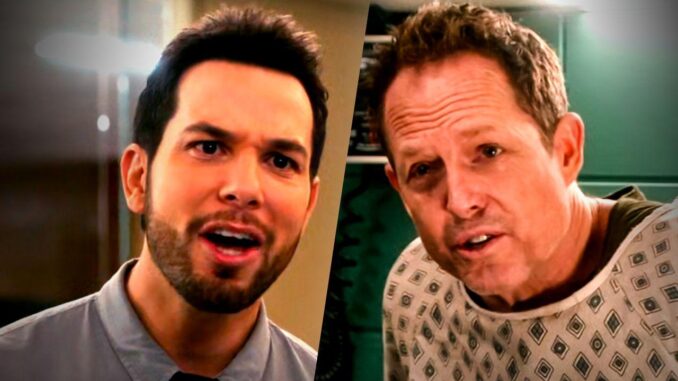
The digital hum is a constant companion in our hyper-connected world, a low thrum of speculation, adoration, and manufactured narrative that often eclipses the quiet truths of reality. For celebrities, this hum can swell into a roar, particularly when the lines between their on-screen personas and off-screen lives blur into a vibrant, fan-fueled tapestry. Skylar Astin, a name synonymous with charismatic roles and a certain irresistible charm, recently found himself at the nexus of such a phenomenon, as he "opened up about his off-screen romance amid Todd buzz." This seemingly simple revelation is far more than celebrity gossip; it's an illustrative moment that speaks volumes about the nature of fandom, privacy, and the quiet courage of authenticity in a world obsessed with fictional narratives.
The "Todd buzz," for those outside the immediate echo chamber of Pitch Perfect fandom, refers to the enduring affection and fervent desire among fans for Astin's character, Jesse Swanson, and Anna Kendrick's Beca Mitchell (often affectionately dubbed "Bechler" or, more broadly, "Todd" after their fictional college). Their on-screen chemistry was palpable, a delightful dance of wit, melody, and mutual admiration that resonated deeply with audiences. In the absence of definitive real-life pairings, the fictional romance took on a life of its own, cultivated through fan fiction, social media discussions, and the collective imagination. This "buzz" became a comfortable narrative, a persistent background score to Astin's public life, subtly dictating expectations and coloring perceptions of his personal sphere. It’s a testament to the power of well-crafted storytelling and the human need to see beloved characters find happiness, even if that happiness spills over into the actors' perceived realities.
The dilemma for an actor in such a scenario is profound. How does one navigate the immense affection directed not at them, but at the idealized versions of themselves embodied by their characters? Skylar Astin, with his affable demeanor, has always seemed to embrace the love for Jesse. Yet, there comes a point where the threads of fiction must be gently untangled from the fabric of personal truth. For years, the silence around his actual romantic life, or perhaps just the lack of public spectacle, allowed the "Todd buzz" to thrive, an unconfirmed whisper that felt almost real to those who cherished the on-screen pairing.
His decision to "open up" about a genuine, off-screen romance is, therefore, an act of quiet reclamation. It's not a dramatic exposé but rather a gentle recalibration of public perception. In a world where celebrities often strategically curate their images, this move feels refreshingly unforced. It acknowledges the "buzz" – the enduring power of the fictional bond – but firmly, politely, asserts the primacy of reality. It's a statement that says, "I appreciate your love for Jesse, but here is my life, vibrant and real, unfolding beyond the confines of the silver screen."
This revelation serves as a poignant illustration of several broader themes. Firstly, it highlights the often-parasocial nature of celebrity relationships. Fans invest emotional energy into fictional characters, and by extension, into the actors who portray them, sometimes blurring the lines between art and life. When an actor steps forward with their authentic reality, it can be a jarring, yet ultimately necessary, moment of awakening for the audience, reminding them that these are human beings with lives independent of the roles they play.
Secondly, it speaks to the evolving concept of privacy in the digital age. In a climate of constant surveillance and insatiable curiosity, the act of a celebrity choosing when and how to share intimate details about their life is a powerful assertion of agency. Astin's move wasn't a defensive reaction but an organic unfolding, a choice to share a piece of his genuine happiness on his own terms, thereby setting a boundary that allows his true self to emerge from behind the shadows of fan speculation.
Finally, and perhaps most beautifully, Skylar Astin's choice to speak on his real-life romance amidst the fictional "Todd buzz" is an ode to authenticity. It’s a quiet declaration that while the fantastical narratives are cherished, the quieter cadence of a genuine heartbeat, a real connection, holds its own profound magic. It’s a reminder that beneath the layers of performance and public persona, there are real lives being lived, real loves being forged, and that these, in their simplicity, are just as compelling, if not more so, than any meticulously crafted on-screen romance. The "Todd buzz" may continue to hum, a fond echo of cinematic joy, but now, it resonates against the clear, melodic notes of Skylar Astin's own off-screen symphony.
